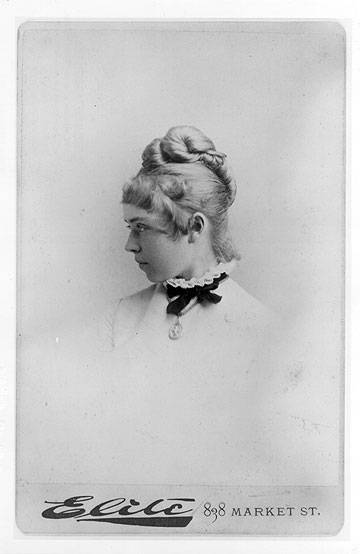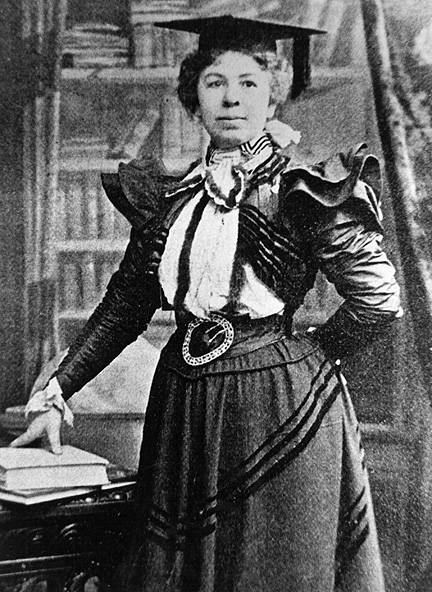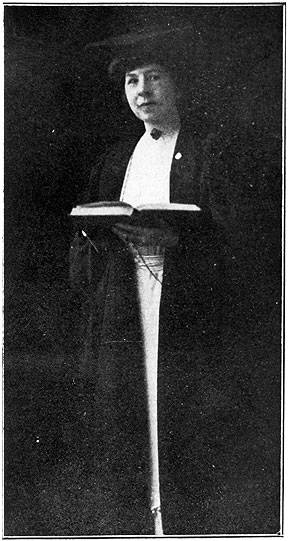First California Women in Law: Difference between revisions
(created page from sixth star material) |
(Added Photo Credits) |
||
| (2 intermediate revisions by one other user not shown) | |||
| Line 1: | Line 1: | ||
'''<font face = | '''<font face = Arial> <font color = maroon> <font size = 4>Unfinished History</font></font> </font>''' | ||
''by Mae Silver, excerpted from [[The Sixth Star|The Sixth Star]]'' | ''by Mae Silver, excerpted from [[The Sixth Star|The Sixth Star]]'' | ||
| Line 7: | Line 7: | ||
'''Mary McHenry Keith, possibly at the time of her graduation from the Hastings School of the Law''' | '''Mary McHenry Keith, possibly at the time of her graduation from the Hastings School of the Law''' | ||
''photo: from | ''photo: from The Bancroft Library, Berkeley, California'' | ||
'''Mary McHenry Keith (1855-1947)''' | '''Mary McHenry Keith (1855-1947)''' | ||
| Line 19: | Line 19: | ||
'''Clara Shortridge Foltz: a woman of the law''' | '''Clara Shortridge Foltz: a woman of the law''' | ||
''photo: from | ''photo: from The Bancroft Library, Berkeley, California'' | ||
'''Clara Shortridge Foltz (1849-1934)''' | '''Clara Shortridge Foltz (1849-1934)''' | ||
| Line 29: | Line 29: | ||
'''Clara Foltz''' | '''Clara Foltz''' | ||
''photo: from | ''photo: from The Bancroft Library, Berkeley, California'' | ||
When she moved to Los Angeles, Clara Foltz devoted the full resources of her law practice to suffrage. Since it was the votes from the men of Los Angeles and the "cow counties" that created the majority vote for suffrage, the influence of California's "Portia of the Pacific" can never be underestimated. | When she moved to Los Angeles, Clara Foltz devoted the full resources of her law practice to suffrage. Since it was the votes from the men of Los Angeles and the "cow counties" that created the majority vote for suffrage, the influence of California's "Portia of the Pacific" can never be underestimated. | ||
[[The Bifurcated Skirt|Prev. Document]] | [[The Bifurcated Skirt|Prev. Document]] [[Nellie Holbrook Blinn|Next Document]] | ||
[[category:Women]] [[category:Famous characters]] [[category:1890s]] [[category:1900s]] [[category:1910s]] [[category:Tenderloin]] [[category:San Francisco outside the city]] | [[category:Women]] [[category:Famous characters]] [[category:1890s]] [[category:1900s]] [[category:1910s]] [[category:Tenderloin]] [[category:San Francisco outside the city]] | ||
Revision as of 15:19, 25 June 2014
Unfinished History
by Mae Silver, excerpted from The Sixth Star
Mary McHenry Keith, possibly at the time of her graduation from the Hastings School of the Law
photo: from The Bancroft Library, Berkeley, California
Mary McHenry Keith (1855-1947)
As the first woman graduate of the Hastings School of the Law (San Francisco) in 1881, Mary McHenry Keith used her knowledge of the law for a commitment to women's suffrage that spanned two centuries. William Keith, an ardent suffragist and brilliant landscape artist, and Mrs. Keith opened their home to members of the national and local suffrage movement from beginning to end. The Keiths were personal friends of Susan B. Anthony. It was to Mrs. Keith that Miss Anthony entrusted the leadership for the 1911 suffrage campaign in the state. In 1911, two women who had a relationship to law and the Hastings School of the Law, were two key suffrage leaders in the state. Mary McHenry Keith was the Northern California leader; Clara Shortridge Foltz led Southern California.
Her hometown, Berkeley, called her "Berkeley's Mother of Suffrage." As the only town in the counties of Alameda and San Francisco that voted for suffrage--not only in 1896 but again in 1911--one might say that Mary McHenry Keith had mothered Berkeley well.
Clara Shortridge Foltz: a woman of the law
photo: from The Bancroft Library, Berkeley, California
Clara Shortridge Foltz (1849-1934)
A southern California suffrage leader and California's first woman lawyer, Clara Shortridge Foltz figured prominently in the 1911 campaign. After her family moved to the Santa Clara area, she began to read for the law. She wrote the Woman Lawyers' Bill, and with her friend Laura deForce Gordon, she championed the bill which gave women the right to practice law in California. She sued Hastings School of the Law for not admitting women and with Laura deForce Gordon, convincingly argued the case in court. They won.
Clara Foltz
photo: from The Bancroft Library, Berkeley, California
When she moved to Los Angeles, Clara Foltz devoted the full resources of her law practice to suffrage. Since it was the votes from the men of Los Angeles and the "cow counties" that created the majority vote for suffrage, the influence of California's "Portia of the Pacific" can never be underestimated.



